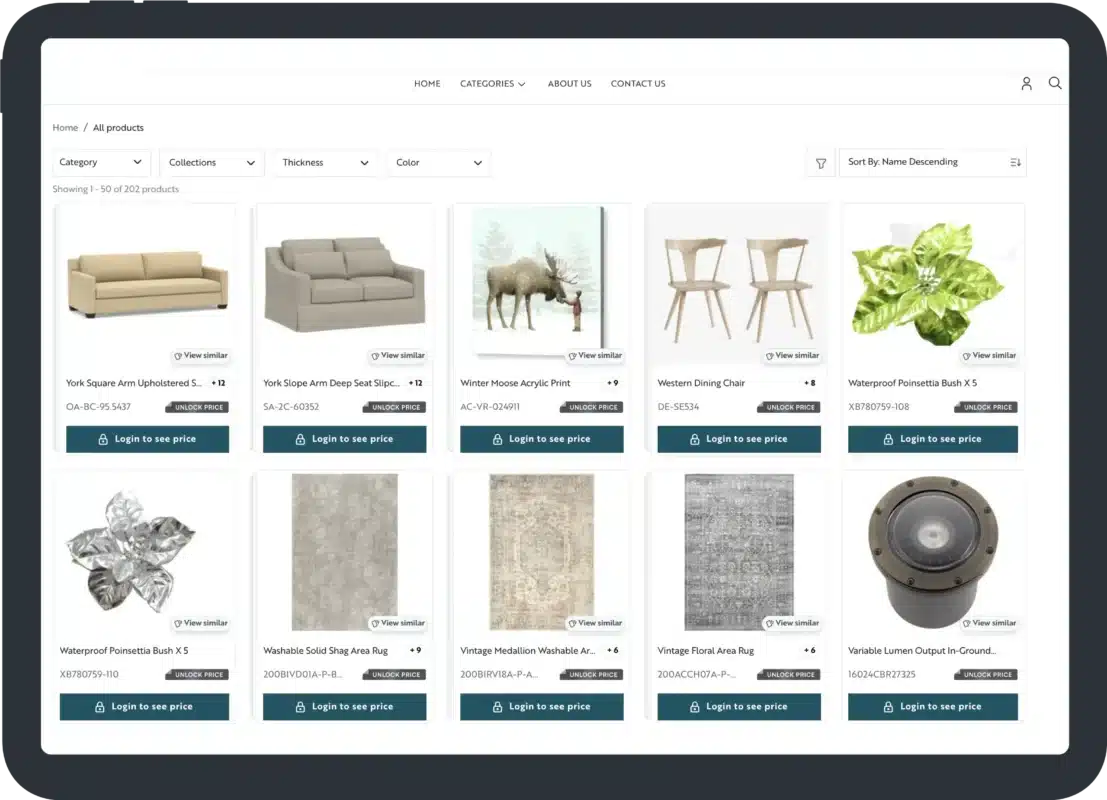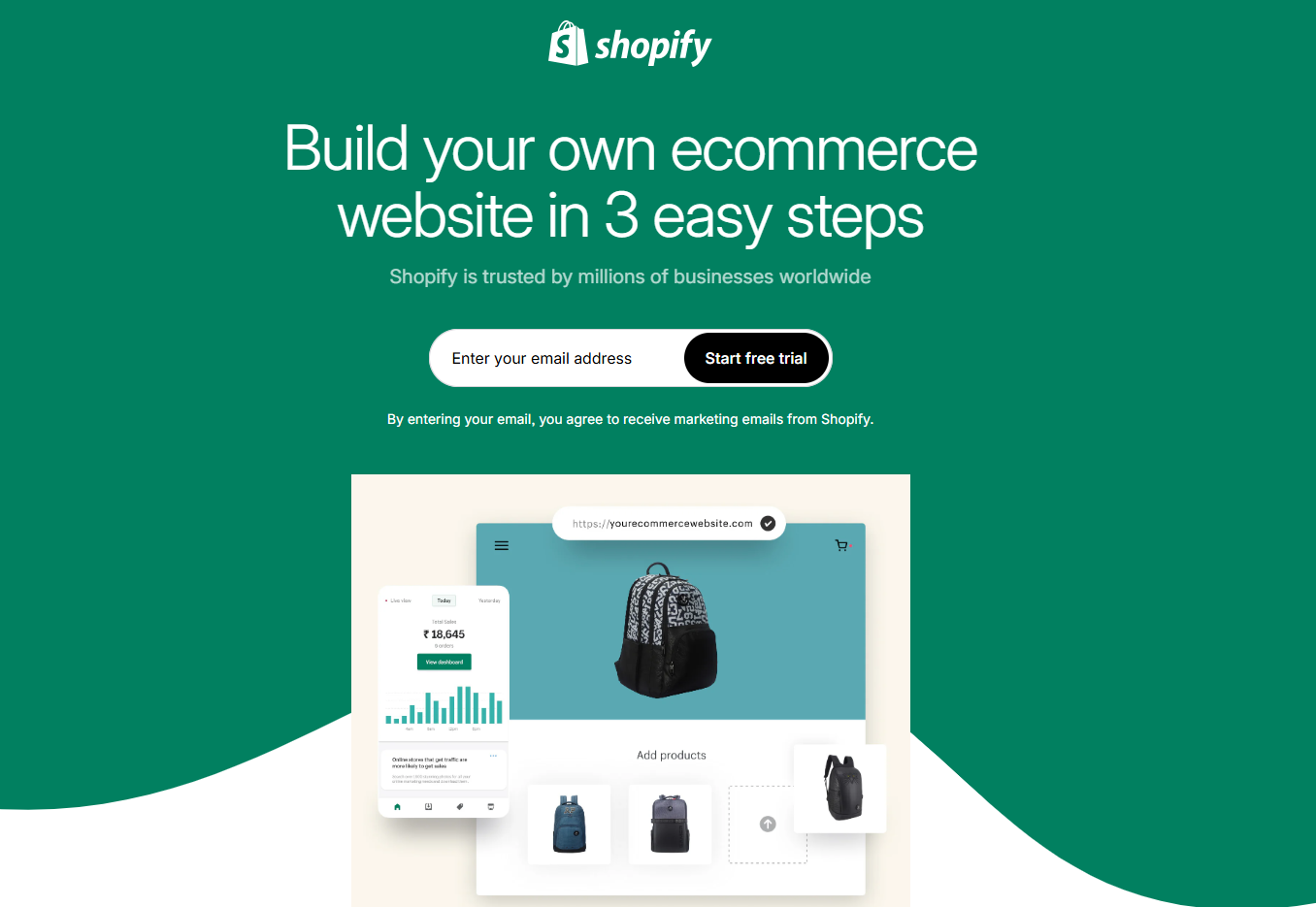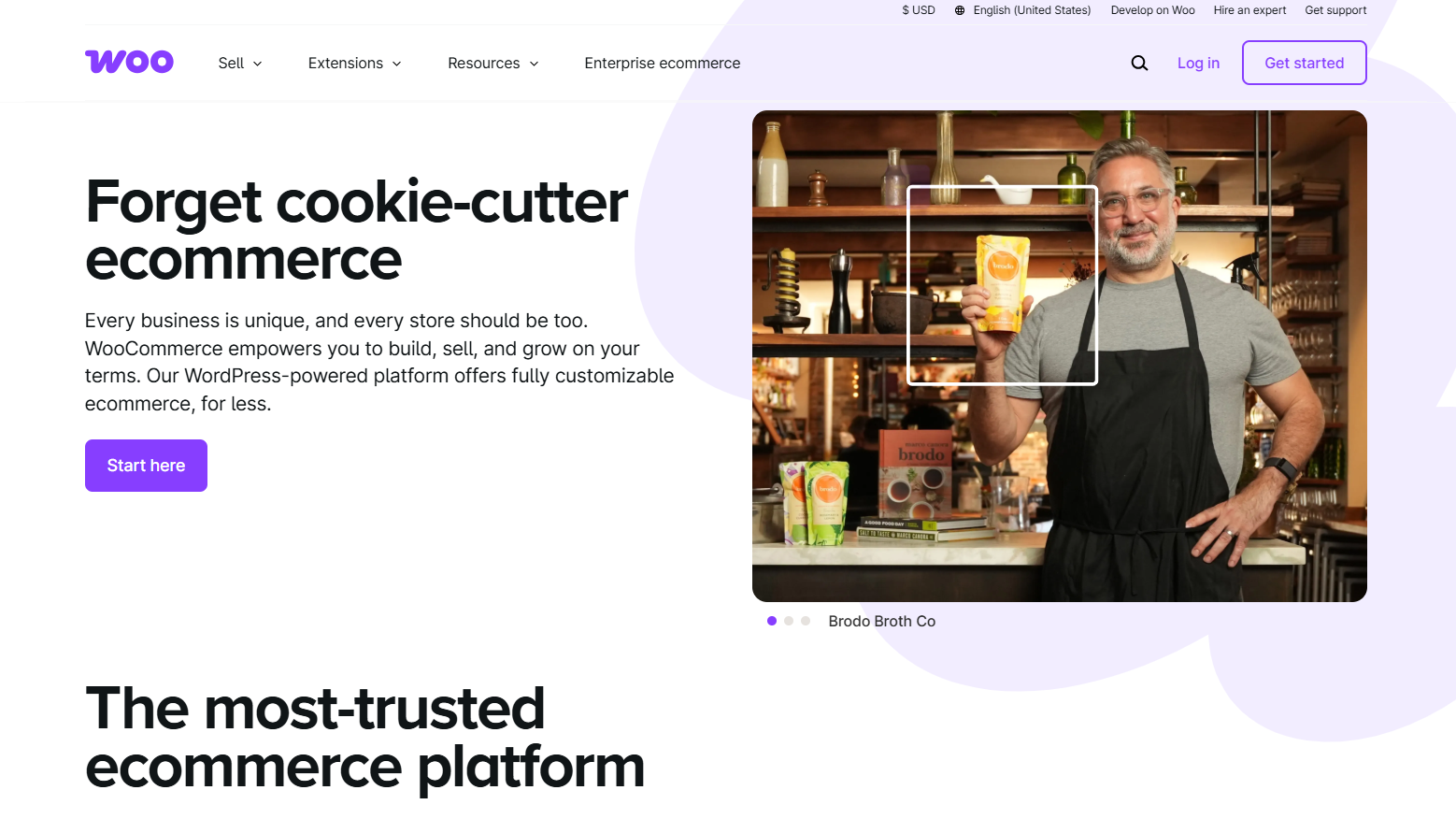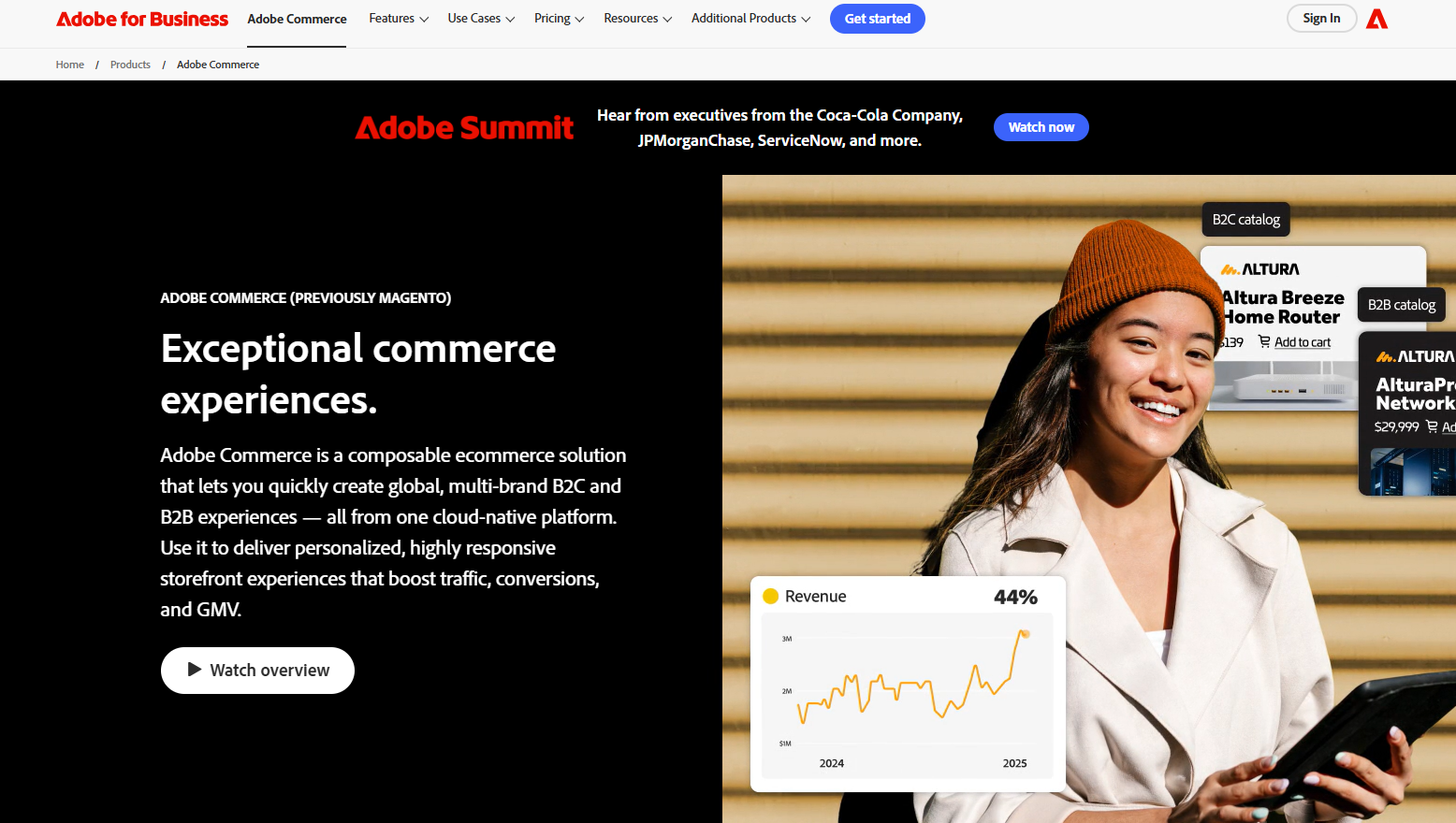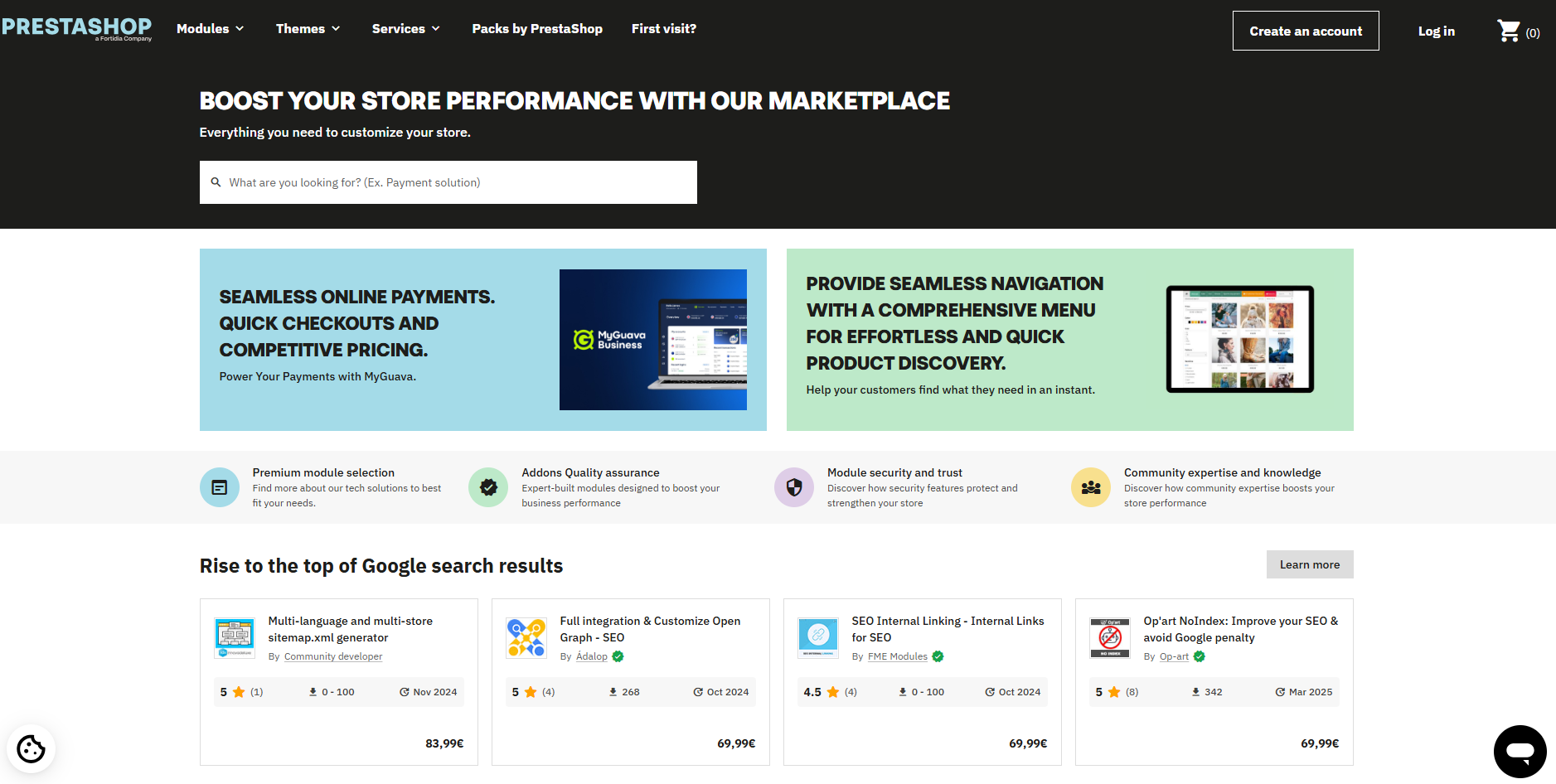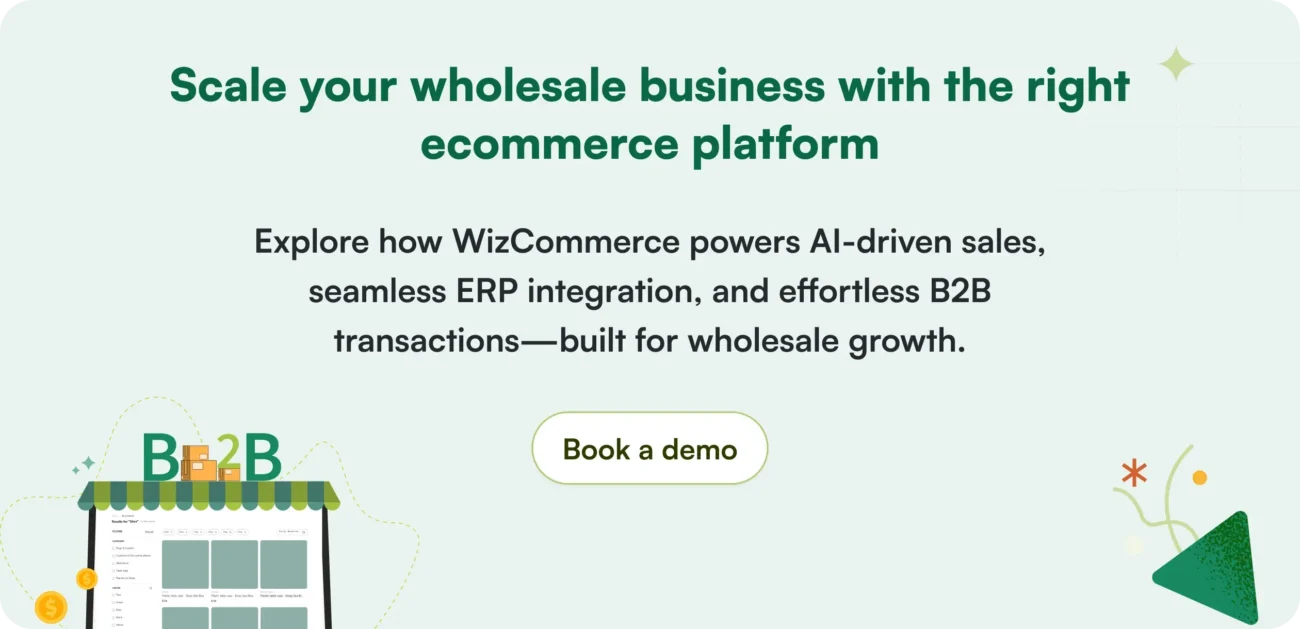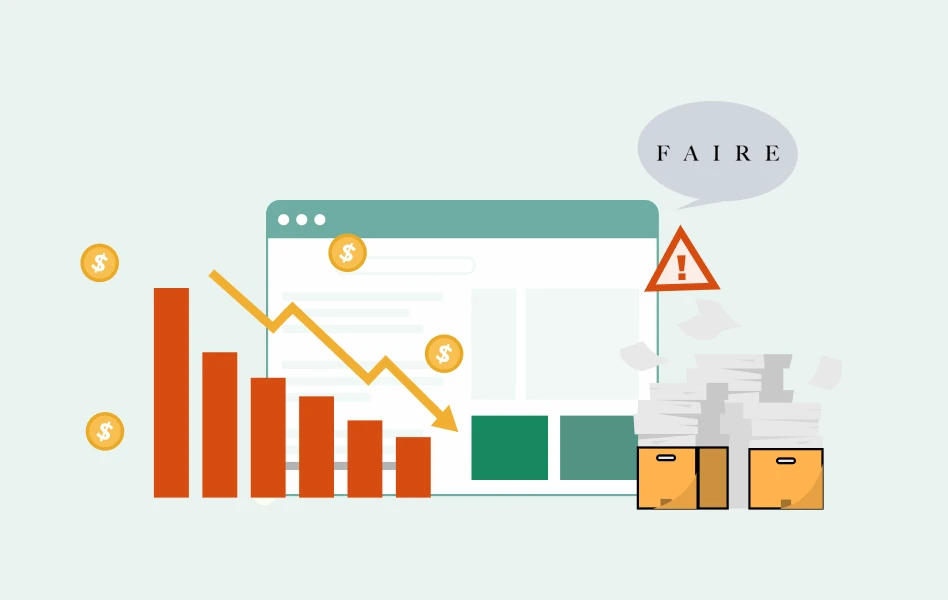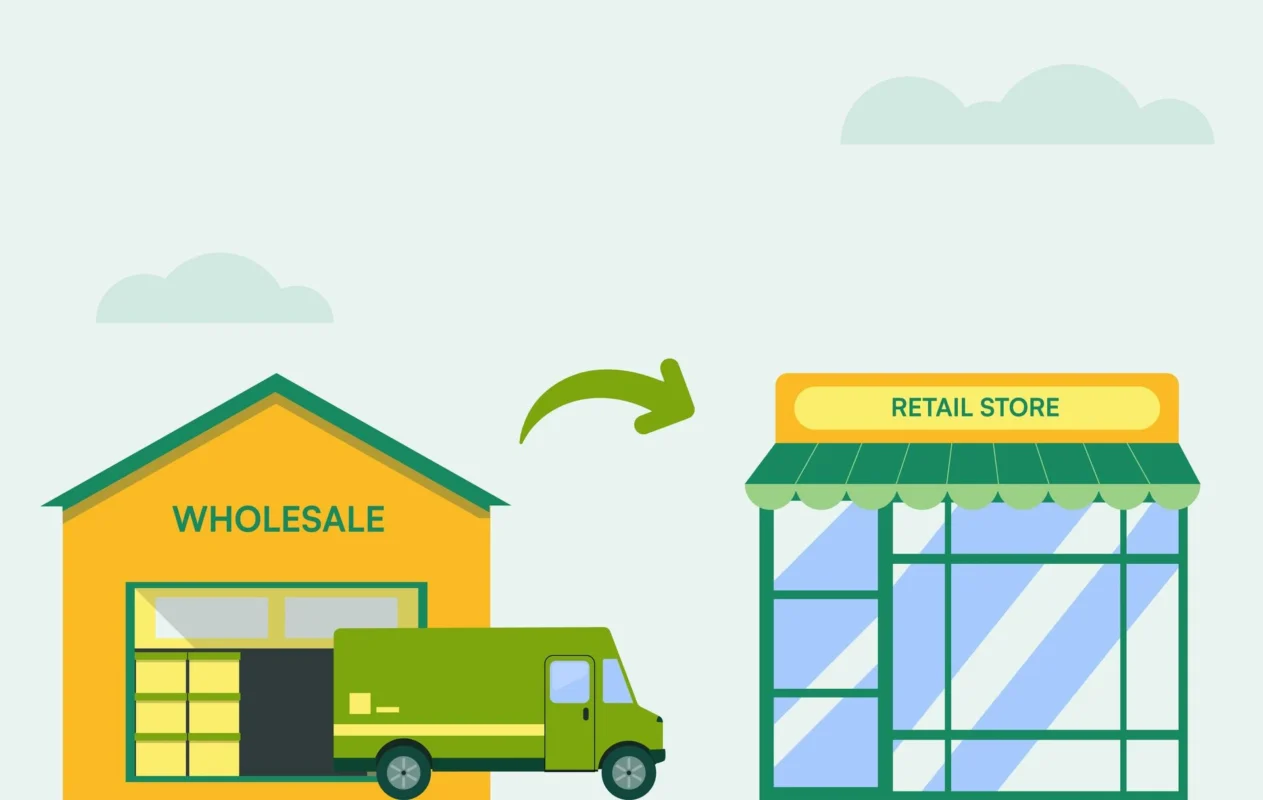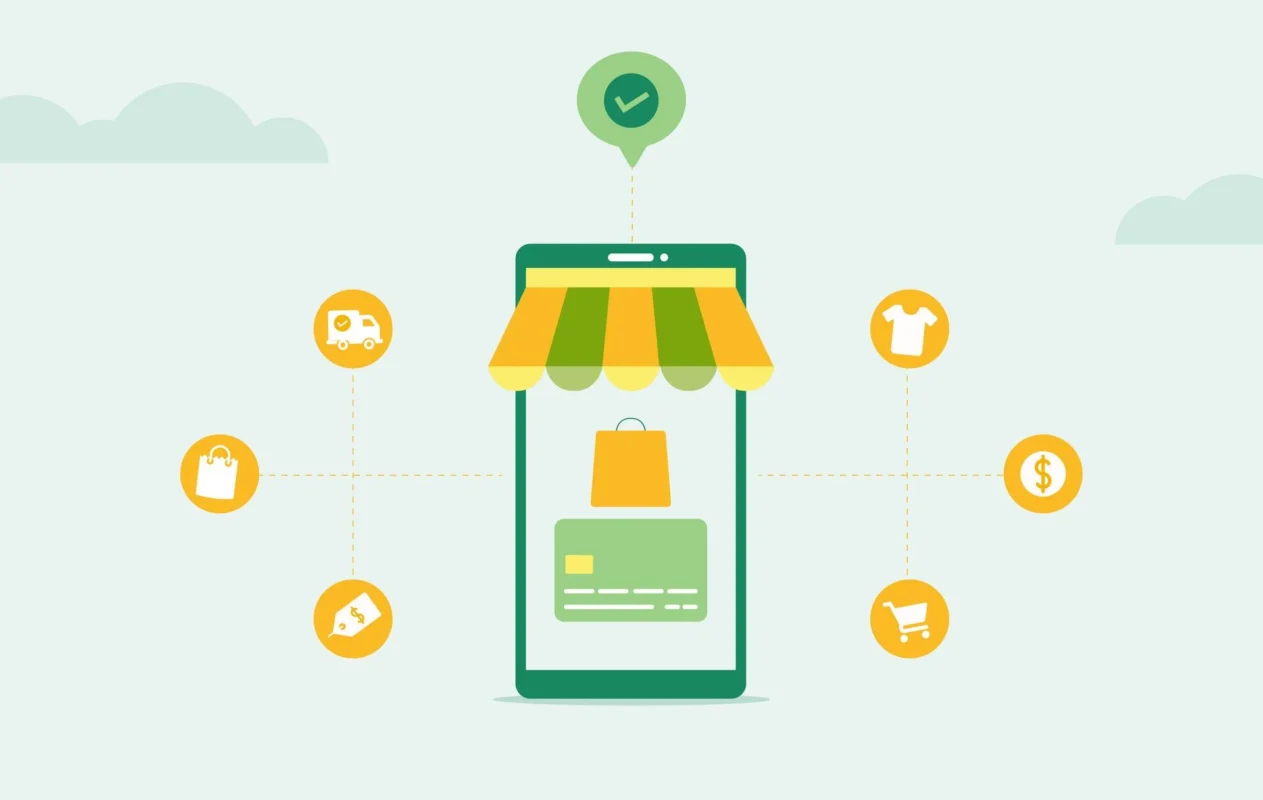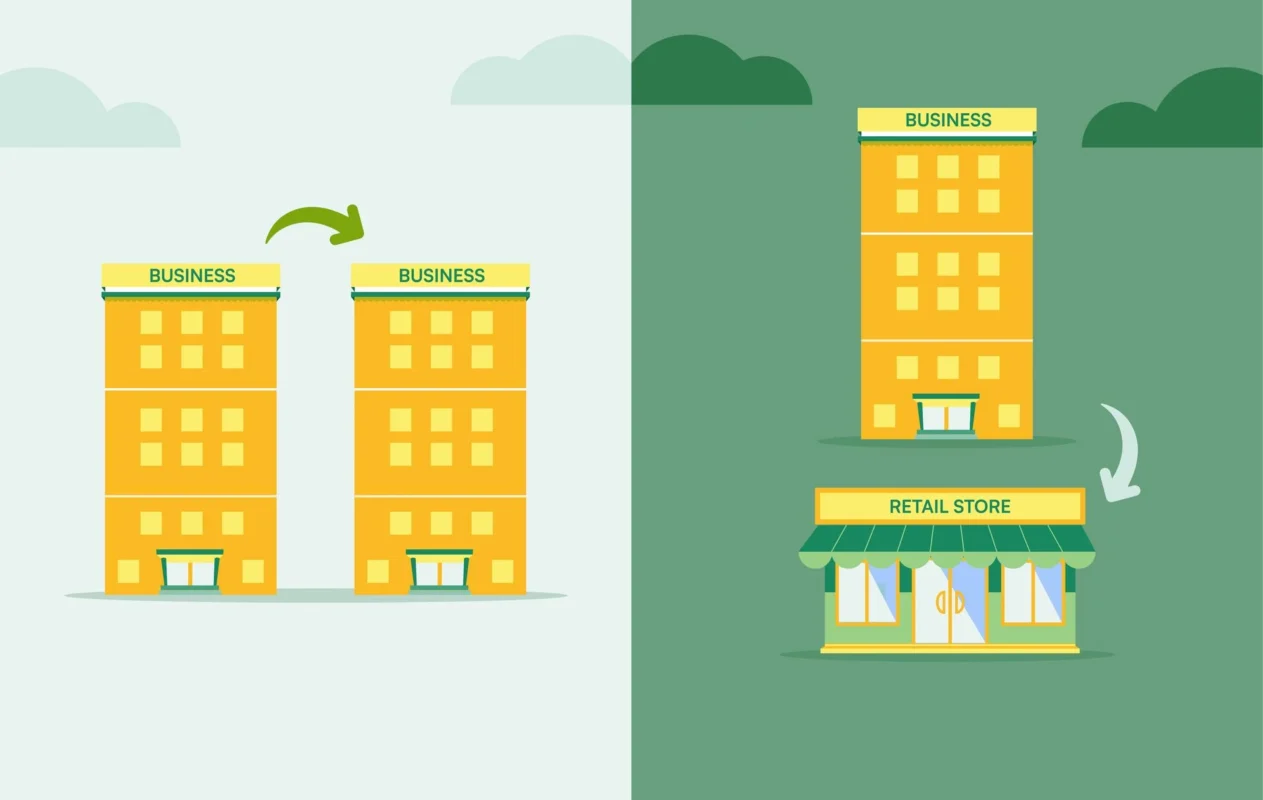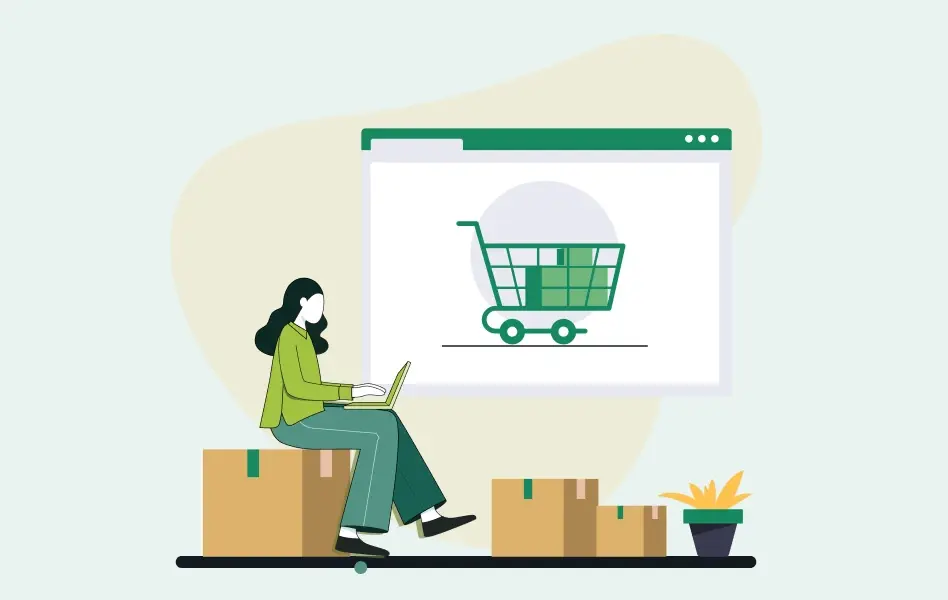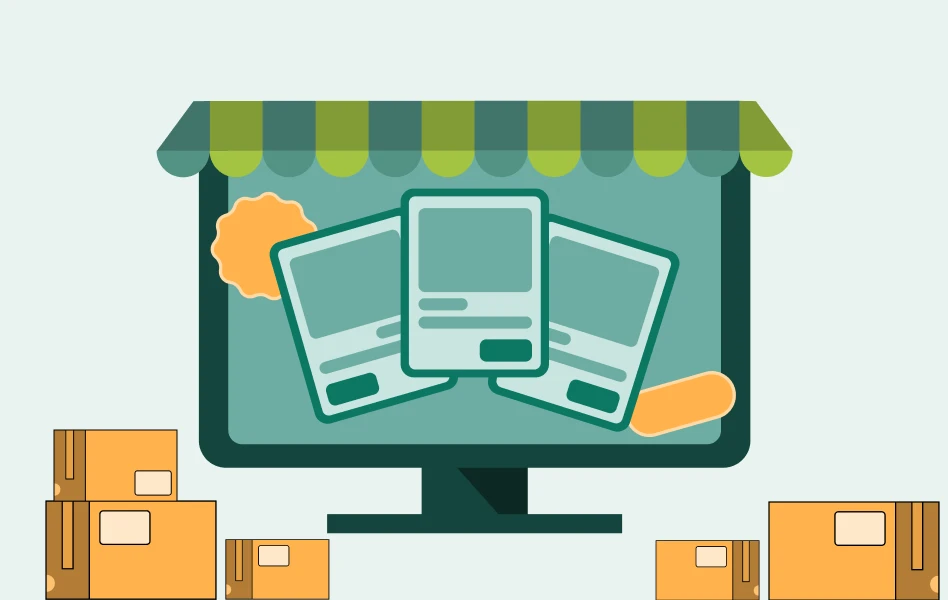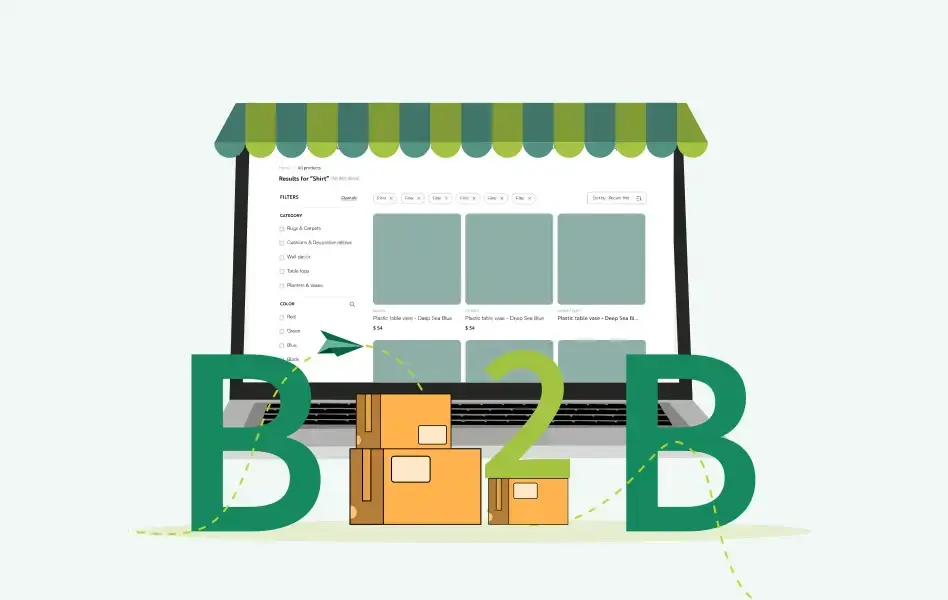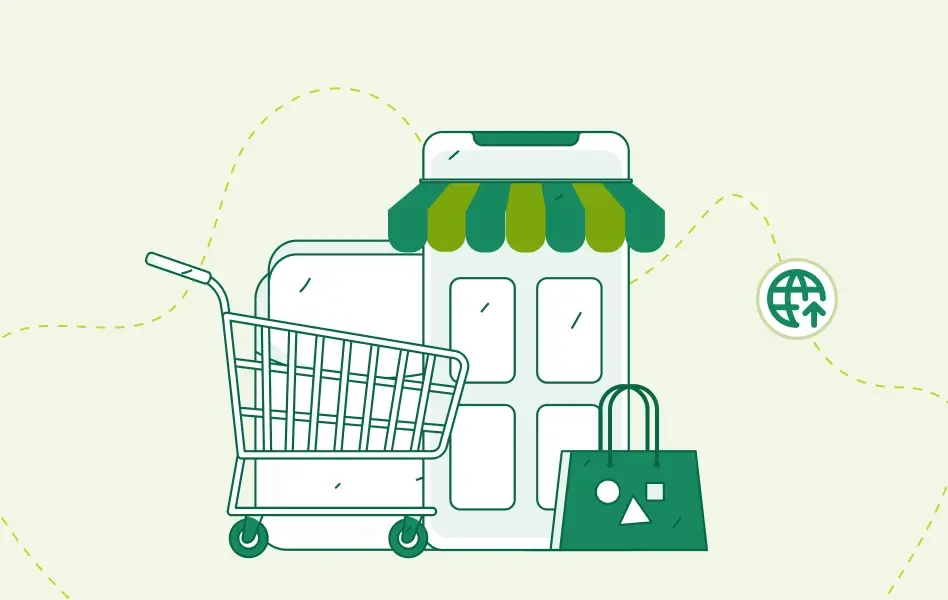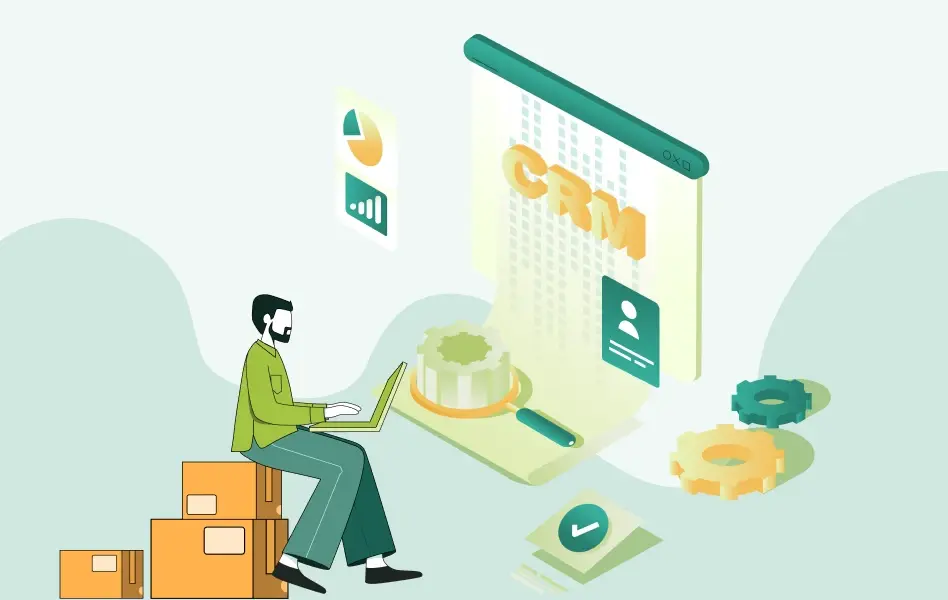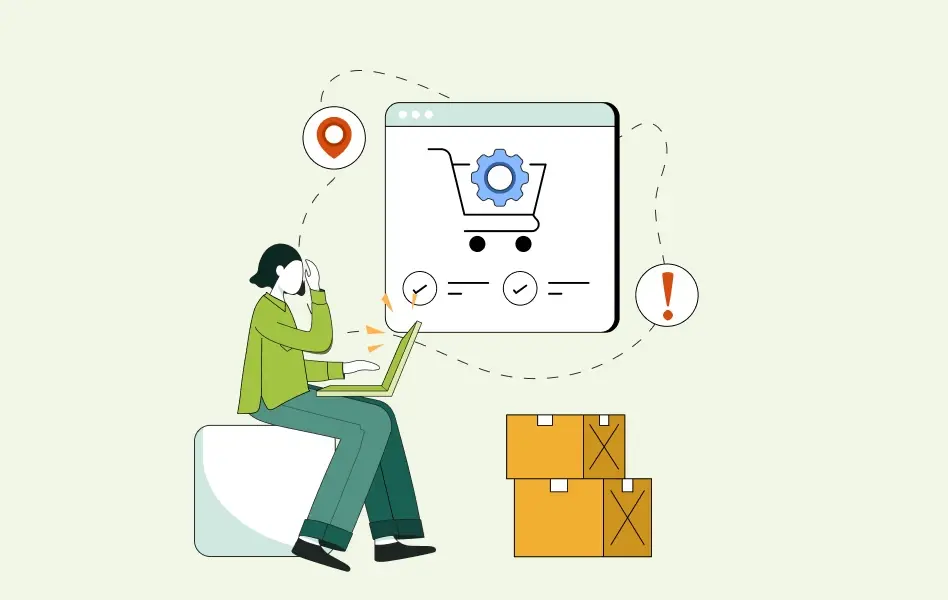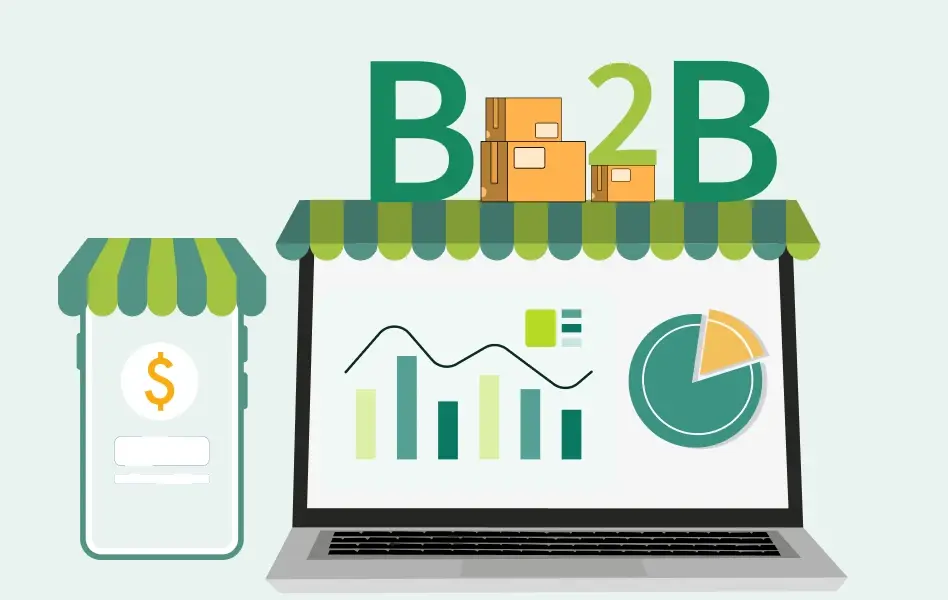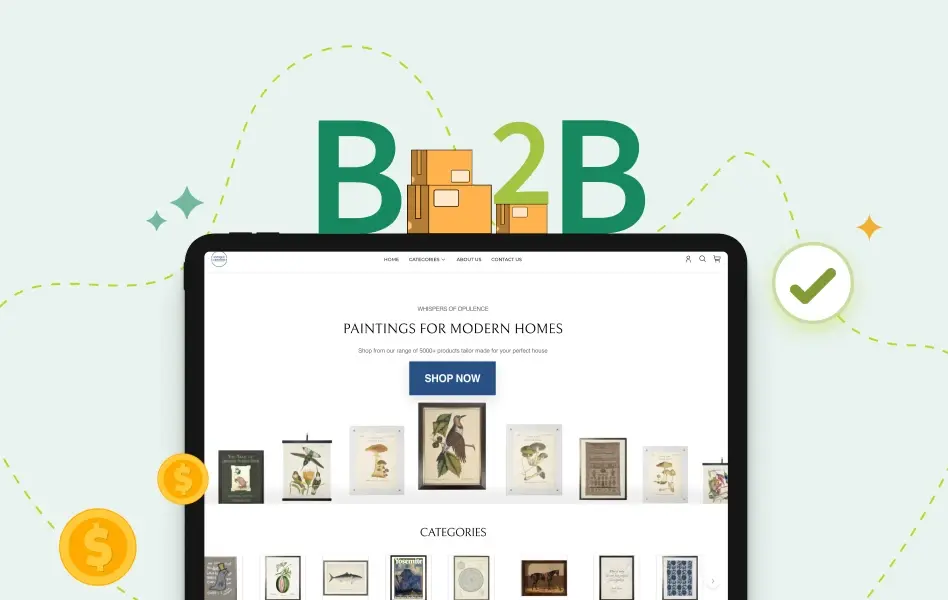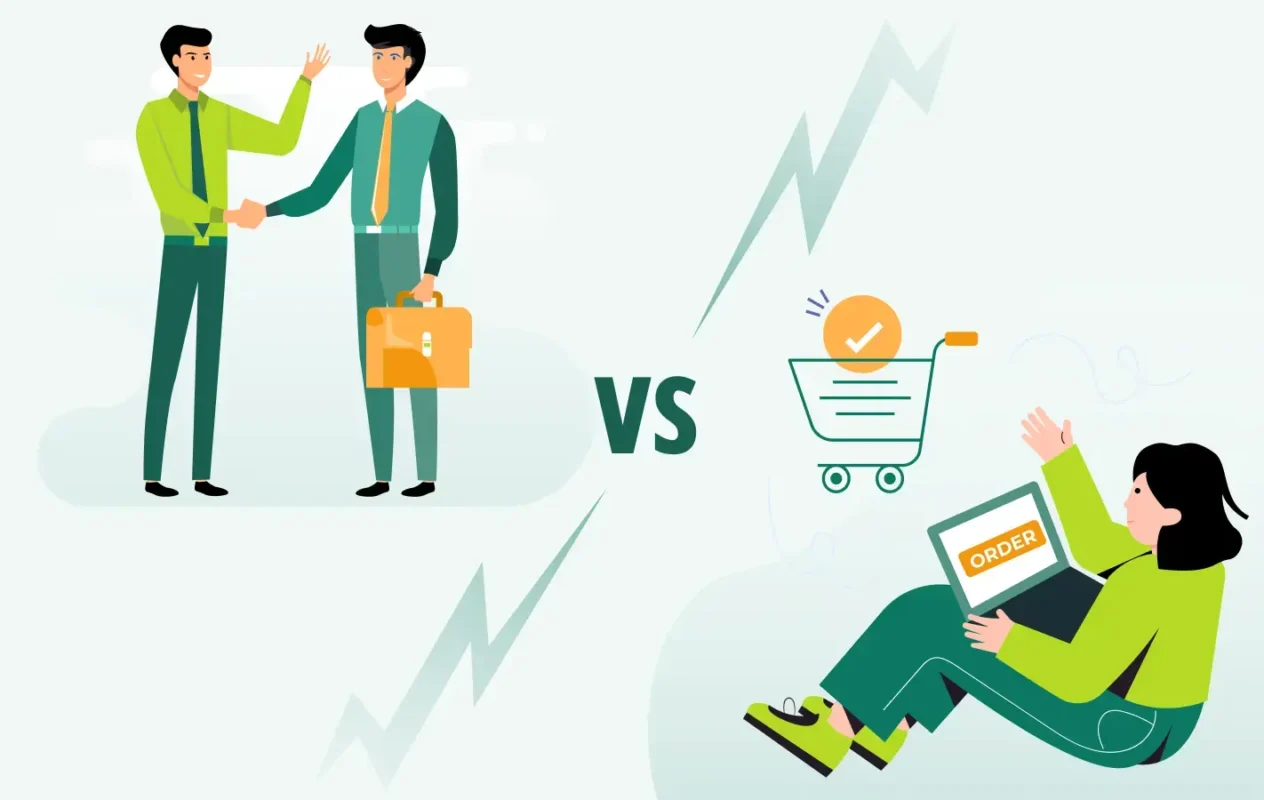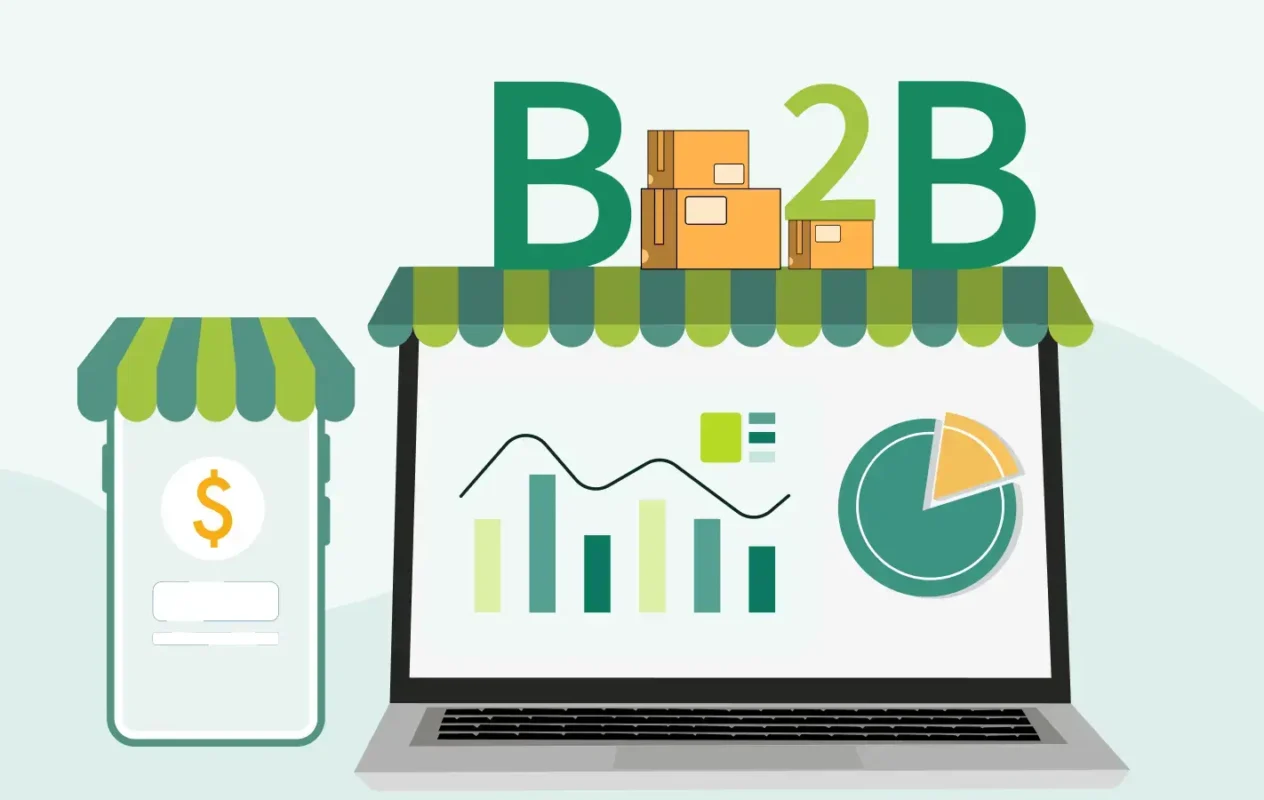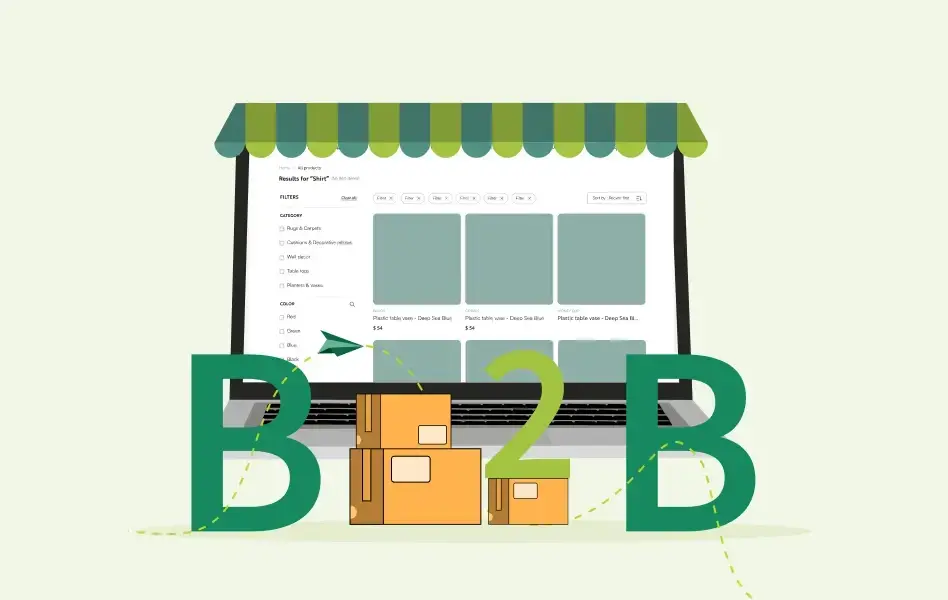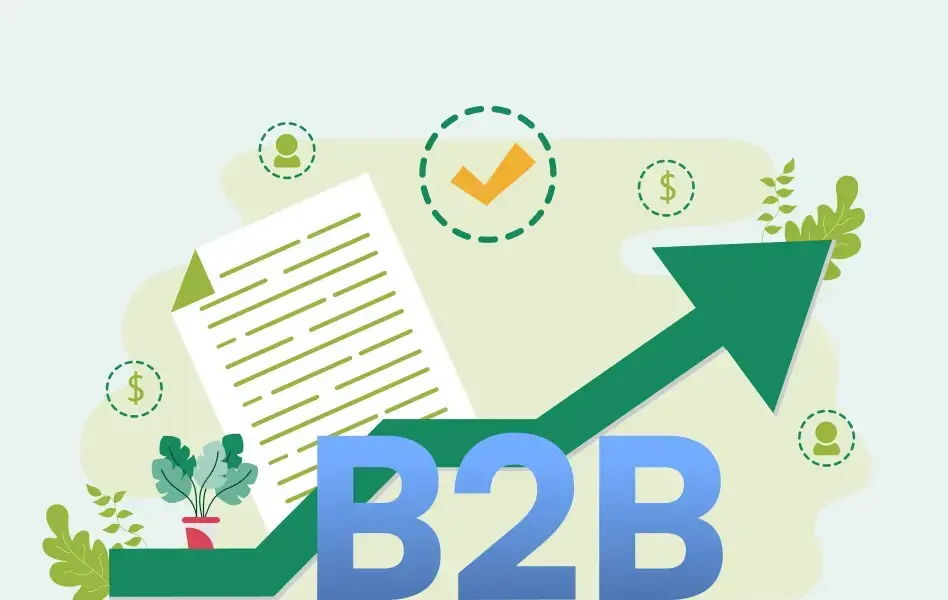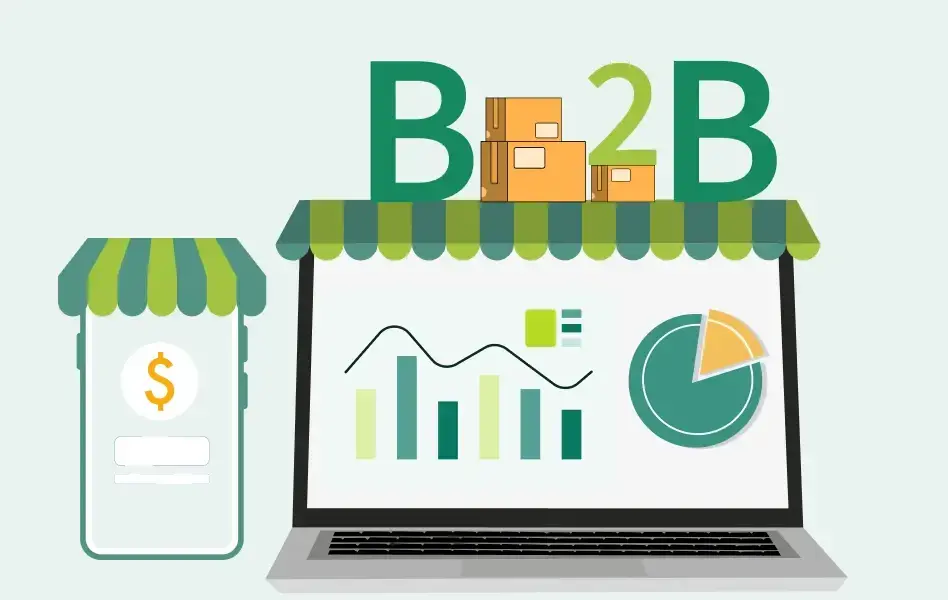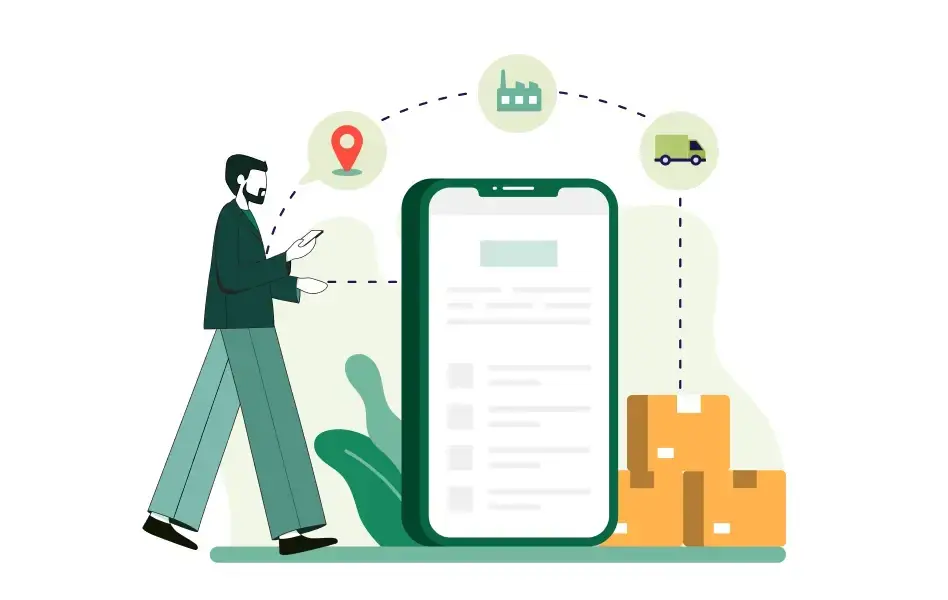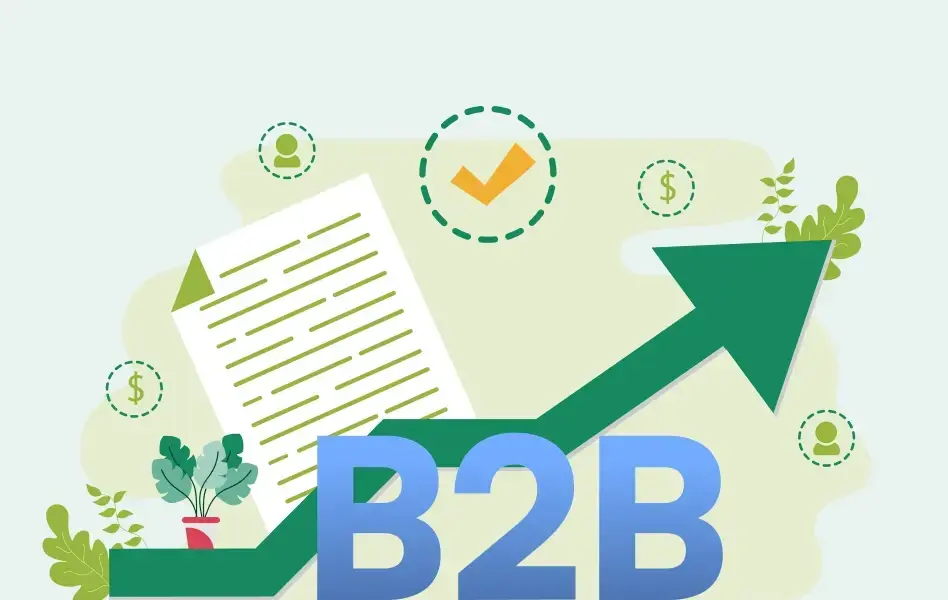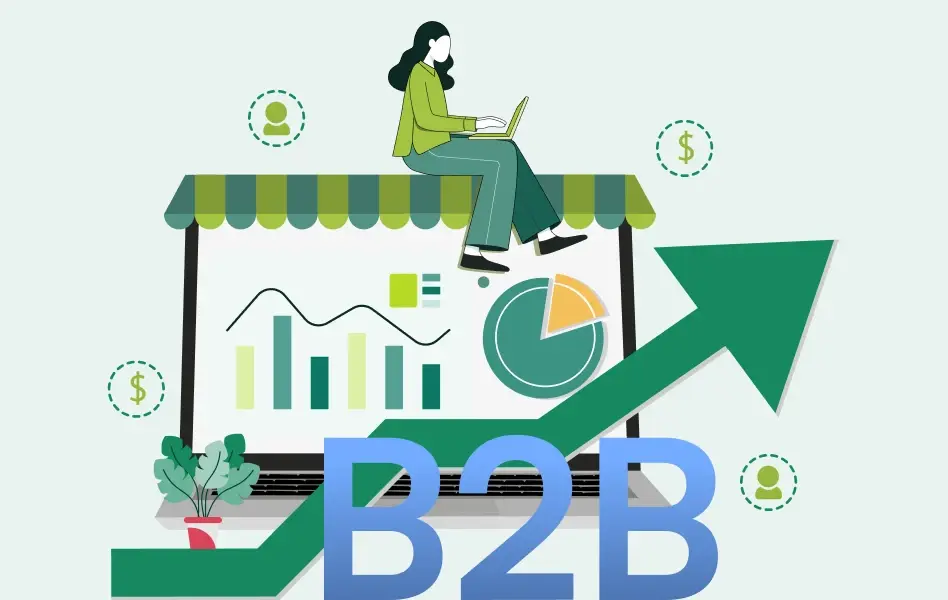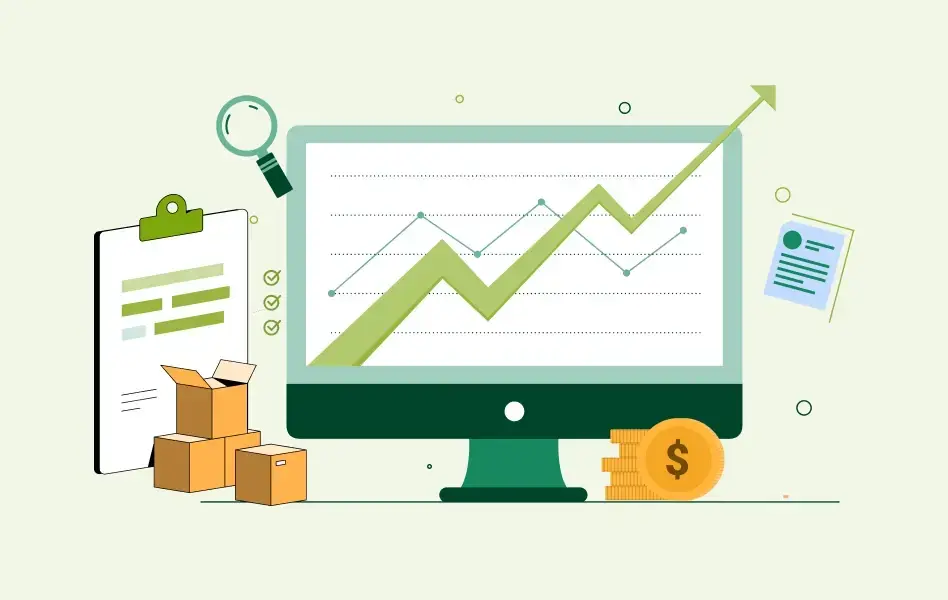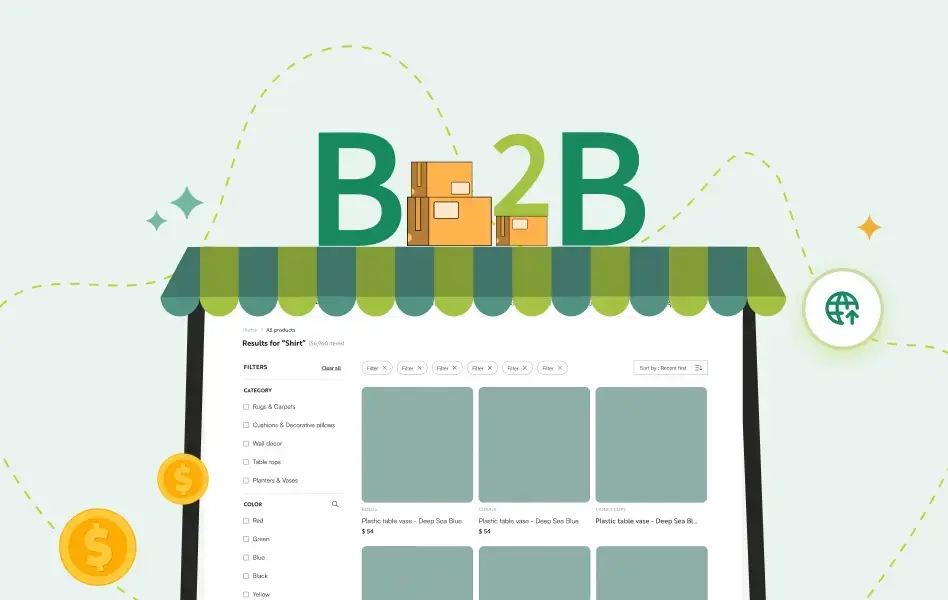Contents
- 1 Importance of wholesale ecommerce in the B2B landscape
- 2 Best wholesale ecommerce platforms in 2025
- 3 Benefits of using wholesale ecommerce platforms
- 4 Criteria for selecting the best wholesale ecommerce platform
- 5 Must have wholesale ecommerce platform’s features and functionalities
- 6 The growing dominance and future of wholesale ecommerce
- 7 Conclusion
Wholesale ecommerce platforms have transformed how B2B ecommerce operates over the last decade. According to a Precedencere Search report, the business-to-business ecommerce market worldwide reached USD 11.54 trillion by the end of 2024 and is expected to surge to USD 60.62 trillion by 2034, growing at a solid CAGR of 18.04%.
During the same period, the U.S. market, worth USD 3.15 trillion in 2024, could increase to USD 16.69 trillion by 2034, achieving a CAGR of 18.13%. Such numbers highlight the growing demand for B2B ecommerce platforms. With the increasing digitization of business operations, wholesale ecommerce websites have become more vital than ever for B2B companies.
Wholesale ecommerce refers to using electronic platforms to conduct wholesale transactions between businesses. In this article, we will discuss the best wholesale ecommerce platforms, significance of wholesale ecommerce websites and examine how the digital evolution of B2B ecommerce will impact wholesale business.
Importance of wholesale ecommerce in the B2B landscape
Wholesale ecommerce platforms have made complex wholesale transactions more accessible and efficient, eliminating the need for traditional trading modes. Wholesale ecommerce solutions enable B2B businesses to conduct transactions online and provide a faster, smoother user experience.
McKinsey & Company found that the share of average global company revenue from ecommerce increased by 23% when comparing figures before and during the coronavirus pandemic. Online wholesale transactions have seen massive growth. Wholesale ecommerce has leveled the playing field for small and medium-sized wholesale businesses by expanding their access to a broader customer base online.
It has reduced operational costs through automation and streamlined processes. Additionally, digital platforms offer advanced analytics and marketing tools, helping smaller businesses compete effectively against larger companies. It has also expanded the opportunities for buyers and sellers, increasing profitability for both parties.
As wholesale ecommerce grows, its importance for B2B businesses is becoming more evident. The convenience, cost reduction, and increasing speed of transactions offered by wholesale ecommerce platforms ensure that they will likely remain an essential component for B2B businesses for years to come.
Best wholesale ecommerce platforms in 2025
1. WizCommerce
WizCommerce is an AI-powered B2B ecommerce platform built specifically for wholesalers, manufacturers, and distributors. Unlike general-purpose ecommerce platforms, WizCommerce is tailored to handle the complexities of bulk ordering, custom pricing, and seamless buyer management—without the need for additional plugins or expensive customizations.
Pros
-
-
- Built for B2B from the ground up – No need for third-party apps; native features support bulk orders, tiered pricing, customer-specific catalogs, and complex transactions.
- AI-powered product discovery – Enhance sales with AI-driven recommendations, personalized catalogs, and an intuitive ‘View Similar’ feature to boost conversions.
- Seamless ERP & accounting integrations – Connect effortlessly with QuickBooks, NetSuite, and custom ERPs for real-time inventory and pricing updates.
- Flexible payment options – Accept multiple payment methods, including net terms, ACH, credit cards, and digital wallets, all with lower transaction fees.
- Branded online storefront – Unlike marketplaces, own your brand identity with a customizable storefront and direct customer engagement.
- Built-in automation for efficiency – Automate order follow-ups, abandoned cart recovery, and personalized marketing to drive repeat business.
-
Cons
-
-
- Not ideal for DTC businesses – WizCommerce is designed for wholesale operations rather than direct-to-consumer retail.
-
Ideal for
-
-
- Wholesalers, manufacturers, and distributors looking for a robust, all-in-one B2B ecommerce platform without relying on third-party apps.
- Businesses that need custom pricing, bulk discounts, and seamless ERP integration for efficient operations.
- Companies seeking AI-powered sales growth through intelligent product recommendations and automated customer engagement.
- Sellers who want full control over branding, pricing, and customer relationships without marketplace restrictions.
-
2. Shopify
Shopify is a widely used ecommerce platform known for its simplicity and flexibility. While primarily focused on direct-to-consumer (DTC) retail, it also offers tools for expanding into wholesale operations.
Pros
-
-
- Provides an intuitive interface that makes it an excellent choice for businesses seeking an uncomplicated wholesale solution.
- Offers a more cost-effective option than platforms like Adobe Commerce, making it suitable for smaller wholesalers.
- Access to specialized wholesale apps allows for added functionality as needed.
- Manages both retail and wholesale storefronts simultaneously.
-
Cons
-
-
- Built-in wholesale capabilities may not be as comprehensive as those of platforms specifically designed for B2B. More complex wholesale processes require additional apps.
- Have some limitations, particularly in terms of advanced customization, for very large B2B operations.
-
Ideal for
-
-
- Small to medium-sized wholesale businesses that are seeking a straightforward, budget-friendly solution.
- Businesses that need basic wholesale features such as tiered pricing, minimum orders, and a simplified process.
- Those looking for a platform that is easy to set up and easily manageable.
- Companies that want the flexibility to integrate specific wholesale features through apps.
-
3. BigCommerce
BigCommerce provides a balanced solution for wholesale ecommerce, combining solid built-in B2B features with the ability to customize for complex wholesale requirements. This makes it suitable for a wide range of wholesalers.
Pros
-
-
- Offers more comprehensive out-of-the-box wholesale features than Shopify.
- Handles large catalogs, complex pricing, and high order volumes, facilitating business growth.
- Customizes options via APIs and a variety of apps to enable tailored workflows.
- Has an intuitive and easy-to-use backend interface.
- Offers a good balance of features and affordability compared to some enterprise-level platforms.
-
Cons
-
-
- Additional customization or apps might be needed for highly specialized or complex wholesale requirements, similar to Adobe Commerce.
-
Ideal for
-
-
- Medium-to-large size wholesale business that seeks strong native B2B features.
- Companies that want a scalable platform to support your growing operations.
- Companies that seek customization without the complexity of an open-source platform.
- Businesses that demand an easy-to-use backend experience.
-
4. WooCommerce
WooCommerce, an open-source ecommerce plugin for WordPress, is renowned for its flexibility and extensive customization options. Implementing wholesale functionality in WooCommerce generally requires the core platform alongside specialized plugins or extensions.
Pros
-
-
- Allows for significant customization to meet unique wholesale requirements.
- Offers core plugins free, and you can purchase specific wholesale plugins as needed, offering a potentially affordable solution.
- Integrates with your existing WordPress site, taking advantage of its extensive library of plugins and themes.
- Gives access to a vast community of developers and resources for assistance and custom solutions.
-
Cons
-
-
- Setting up and managing a WooCommerce wholesale site often demands technical skills or collaboration with a WooCommerce agency.
- Lacks built-in wholesale features and relies on third-party plugins, which can add to the complexity and cost.
- Supports considerable growth, large-scale operations might find enterprise-level B2B platforms more suitable.
-
Ideal for
-
-
- Businesses that require customized solutions and have the technical expertise or are willing to work with an agency.
- Businesses that require flexibility and complete control over their store’s functionality.
- Businesses looking for an affordable wholesale solution.
-
5. Magento (Adobe Commerce)
Adobe Commerce is a powerful platform for online businesses of all sizes. It’s beneficial for wholesale or B2B operations and highly regarded for handling complex bulk product sales.
Pros
-
-
- Manages increasing orders, products, and customer numbers.
- Connects with other business systems for efficient operations.
- Open-source with numerous add-ons to tailor the platform to specific needs.
- Provides tools to analyze and improve sales and operational performance.
-
Cons
-
-
- The Cloud version can be more expensive than simpler alternatives.
- Often needs professional help for setup and maintenance.
- It may take some time to learn all its features.
-
Ideal for
-
-
- Medium to large businesses with complex product catalogs and pricing structures.
- Companies that require extensive customization and integration with other systems.
- Businesses planning for growth need a scalable platform.
- Organizations with the budget and technical resources to implement and maintain the platform or those willing to partner with experts for support.
-
6. PrestaShop
PrestaShop is a flexible, open-source ecommerce platform that’s free to use. While it doesn’t have extensive built-in wholesale features, it offers a wide range of add-ons (modules) to enhance its capabilities.
Pros
-
-
- Offers free or cost-effective customization through selective add-on purchases.
- Allows you to tailor your store to specific wholesale needs, especially when using add-ons.
- Benefits users and developers who offer support and custom solutions.
-
Cons
-
-
- Creating a functional wholesale solution requires selecting and integrating the right add-ons, which can add complexity and cost.
- Setting up and maintaining a PrestaShop wholesale site often requires technical skills, mainly customization.
- Lacks specialized wholesale features, necessitating additional modules to achieve the desired functionality.
-
Ideal for
-
-
- Tech-savvy small to medium-sized wholesaler looking for a cost-effective and customizable platform.
- Businesses that rely on add-ons and are willing to invest time in the setup process.
- Organizations looking to adapt the system to their specific wholesale requirements.
-
Benefits of using wholesale ecommerce platforms
Wholesale ecommerce websites significantly benefit businesses that sell products in bulk to other companies. Here are some significant advantages that ecommerce platform for wholesale can provide.
1. Access to a broader market
Wholesale ecommerce opens up the possibility of reaching customers worldwide, breaking down geographical barriers, and reaching a larger audience.
2. Simplified transactions
ecommerce for wholesale offers automation tools that simplify complex transactions, making buying more accessible for buyers and sellers.
3. Improved customer service
These platforms enhance customer relationships by providing better service and interaction, creating a more personalized buyer experience.
4. Scalability and flexibility
Wholesale ecommerce websites allow businesses to grow and adapt to changes in demand, ensuring that the platform can handle increasing transactions and inventory.
5. Easy integration
ecommerce for wholesale seamlessly integrates with existing business systems, making operations smooth and efficient without disrupting current processes.
6. Cost efficiency
By automating processes like order management, invoicing, and customer communication, wholesale ecommerce platforms help businesses reduce operational costs and improve efficiency.
7. Advanced pricing control
Wholesale platforms allow businesses to implement custom pricing, tiered discounts, and bulk order pricing strategies to cater to different customer segments effectively.
8. Data-driven insights
With built-in analytics and reporting tools, businesses can track sales performance, monitor customer behavior, and optimize their strategies for growth.
With these benefits in mind, it’s essential to understand what criteria to consider when choosing your ideal wholesale ecommerce platform.
Criteria for selecting the best wholesale ecommerce platform
Choosing the right B2B ecommerce platform is crucial for the success of any B2B business. To make an informed decision, several criteria must be considered. These criteria help evaluate and select the best wholesale ecommerce platform that fits the business’s specific needs and requirements.
1. Scalability, customization, and user interface
An excellent wholesale ecommerce website should be scalable, meaning it can handle increased traffic and transactions without straining the system. It should also offer customization options to tailor the platform to the business’s branding and preferences. A user-friendly interface is crucial for a seamless buying experience.
2. Inventory management and bulk ordering
Efficient inventory management is vital for wholesale ecommerce websites. The platform should provide features like real-time inventory tracking, stock notifications, and bulk ordering capabilities to handle high-volume purchases and manage inventory levels effectively.
3. Pricing, payment flexibility, and volume discounts
The wholesale ecommerce platform should support flexible pricing options and various payment methods to accommodate buyer preferences. It should also be able to offer volume discounts, rewarding buyers for larger orders.
4. Security and secure payment gateways
Security is paramount when it comes to online transactions. The wholesale ecommerce website should have robust security features, like SSL encryption, to protect sensitive customer data. It should also offer secure payment gateways to ensure safe financial transactions.
5. Mobile shopping and device optimization
In today’s mobile-driven world, a wholesale ecommerce platform must be mobile-friendly and optimized for various devices. This ensures buyers can conveniently access and navigate the website, leading to a better user experience and increased sales.
Must have wholesale ecommerce platform’s features and functionalities
Choosing the best wholesale ecommerce platform for your B2B business is like picking the best playground for all your favorite games. You need to check if it has the right swings, slides, and space to ensure you have the most fun. Let’s explore some key features that make a platform awesome:
1. Custom price lists & approval flows
Wholesale transactions often require tailored pricing structures and approval mechanisms. A robust platform allows businesses to:
-
-
- Assign customer-specific pricing – Set unique prices based on customer segments, contract agreements, or order volume.
- Customized freight & payment terms – Define shipping costs and flexible payment schedules (e.g., net 30, net 60) for different buyers.
- Approval-based order processing – Implement workflows where high-value purchases require internal approvals before processing.
-
Example use case: A supplier selling industrial equipment offers tiered discounts to bulk buyers but requires internal approval for orders exceeding $50,000 to ensure accurate billing.
2. AI-driven product recommendations
Increase order value with intelligent product suggestions tailored to buyer behavior. Key capabilities include:
-
-
- Upselling & cross-selling – Suggest related or higher-value items based on past purchases and browsing patterns.
- Alternative suggestions – Prevent lost sales by recommending similar products when an item is out of stock.
- Frequently bought together – Display complementary products often purchased in combination to encourage bulk orders.
-
Example use case: A distributor selling office supplies suggests compatible printer ink when a customer adds a printer to their cart, increasing the average order value.
3. Advanced product discovery
Finding the right products in large catalogs can be challenging, but these features make navigation effortless:
-
-
- Typo-tolerant search – Displays relevant results even when buyers make minor spelling errors.
- Smart filters & sorting – Allows filtering by category, brand, price, stock availability, and custom attributes.
- Detailed product pages – Includes multiple images, specifications, bulk pricing, and customer-specific discounts.
-
Example use case: A hardware wholesaler enables buyers to filter products by voltage, capacity, and manufacturer, making it easy to locate the right components.
4. One-click reordering
Repeat purchases are common in B2B, and a streamlined reordering process enhances efficiency:
-
-
- Saved order history – Customers can instantly reorder previously purchased items without searching again.
- Pre-filled checkout – Billing details, shipping addresses, and payment methods are auto-populated for a frictionless experience.
- Bulk order templates – Frequently ordered products can be saved as templates, reducing order placement time.
-
Example use case: A restaurant chain reorders the same food supplies every month. Instead of manually adding items to the cart, they simply click “reorder” and confirm checkout.
5. Flexible B2B checkout
Wholesale buyers often require a more adaptable checkout experience. Key features include:
-
-
- Multiple billing & shipping options – Support for split shipments, multiple delivery locations, and consolidated invoicing.
- Custom payment terms – Buyers can choose from various payment methods, including credit cards, bank transfers, and net terms (e.g., net 30, net 60).
- Scheduled deliveries – Allows buyers to select future delivery dates based on their inventory needs.
-
Example use case: A furniture wholesaler enables retailers to place bulk orders today but schedule deliveries over the next three months to align with store inventory levels.
6. Self-service & automated communications
Reduce dependency on customer service teams while improving the buyer experience with:
-
-
- Customer self-service portal – Buyers can log in to view past orders, invoices, shipment tracking, and payment history.
- Real-time order updates – Automated notifications inform customers when their order is confirmed, shipped, or out for delivery.
- Payment & invoice reminders – Sends automated alerts for upcoming payments to ensure timely collections.
-
Example use case: A B2B fashion distributor’s clients can access invoices and check shipment statuses directly in their portal, eliminating the need to contact support.
The growing dominance and future of wholesale ecommerce
B2B buyers are increasingly shifting towards digital channels, transforming the wholesale ecommerce landscape. A report from Digital Commerce 360 reveals that 70% of B2B buyers now prefer online purchasing over traditional methods, favoring vendors with robust ecommerce platforms. Meanwhile, McKinsey data highlights that 35% of these buyers are comfortable making online purchases exceeding $500,000, signaling the accelerated adoption of digital solutions—even for high-value transactions.
Statista further underscores this digital shift, showing that B2B digital transaction revenue in the U.S. surged from 34% in 2021 to 45% in 2023 and is projected to reach 56% by 2025. Additionally, the MasterB2B 2024 State of B2B ecommerce report states that 62% of buyers prefer restocking supplies online for speed and convenience. These numbers make it clear—wholesale ecommerce is not just a trend but a necessity for businesses looking to stay competitive.
Future trends in wholesale ecommerce
As technology continues to evolve, emerging innovations are redefining the B2B ecommerce experience.
-
-
- AI-driven personalization – Artificial intelligence and machine learning are enabling tailored shopping experiences. AI-powered systems analyze buyer behavior to offer personalized product recommendations, streamline purchasing, and enhance customer engagement.
- Cross-border ecommerce expansion – With increasing digital connectivity, wholesalers have greater opportunities to tap into global markets, expanding their reach and boosting revenue potential.
- Data-driven decision-making – Advanced analytics tools provide deep customer insights, allowing businesses to optimize marketing strategies, improve inventory management, and refine their overall operations.
-
The combination of these advancements is reshaping the wholesale ecommerce space, offering businesses new avenues for growth, improved customer experiences, and a competitive edge in an ever-evolving market. Companies that fail to adapt risk falling behind as B2B buyers continue to demand seamless, efficient, and technology-driven purchasing experiences.
Conclusion
Selecting the right wholesale ecommerce platform is crucial for B2B businesses looking to streamline operations, increase efficiency, and drive sales growth. With the B2B ecommerce market projected to reach trillions in value, adopting a robust platform is no longer optional—it’s a necessity.
Each platform discussed in this article has its strengths, catering to different business sizes, technical requirements, and customization needs. WizCommerce stands out as a purpose-built B2B solution with AI-powered product discovery, seamless ERP integrations, and flexible payment options. Shopify and BigCommerce offer user-friendly setups with moderate B2B capabilities, while WooCommerce, Magento, and PrestaShop provide high customization for businesses willing to invest in technical resources.
Ultimately, the best wholesale ecommerce platform depends on your business goals, operational complexity, and long-term scalability needs. By evaluating features such as bulk ordering, pricing flexibility, automation, and AI-driven insights, businesses can make informed decisions to enhance their digital commerce experience and stay competitive in the evolving B2B landscape.



